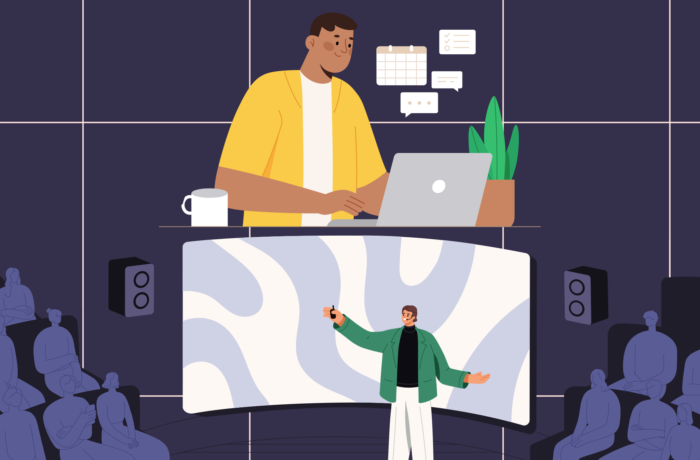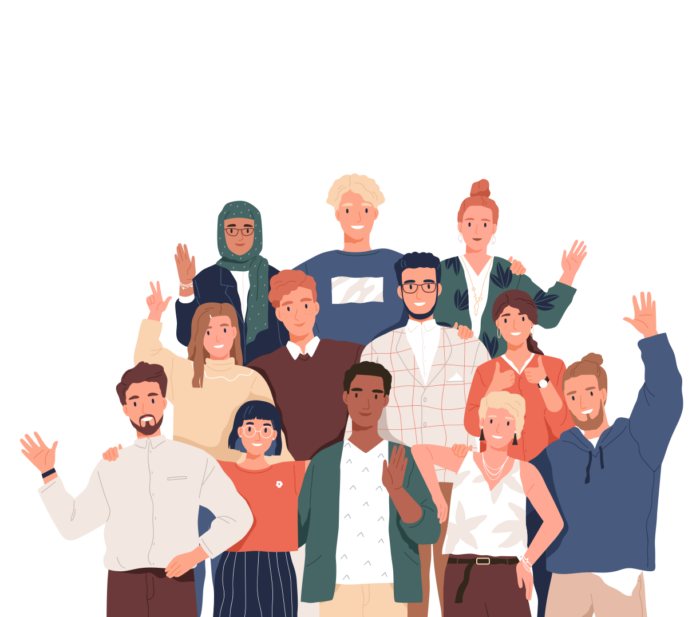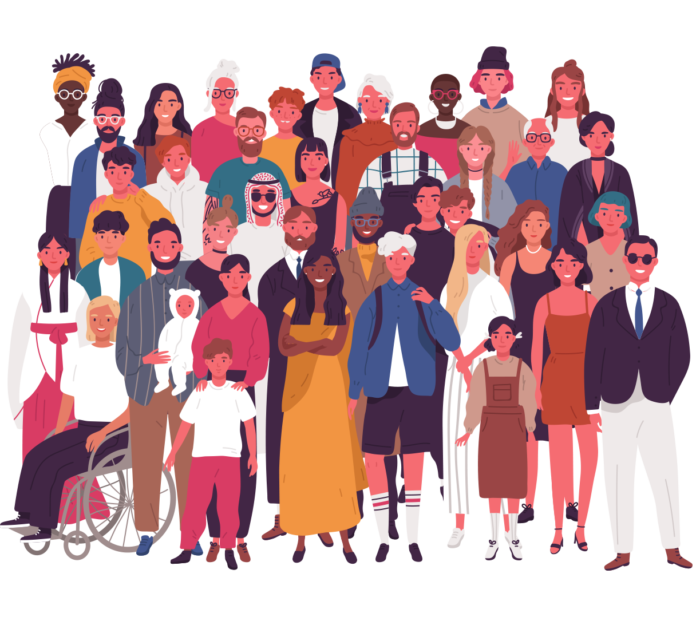Of course, inclusivity isn’t just about how people join an event. The need to be inclusive must take into consideration audiences with diverse backgrounds, disabilities, neurodiversity, and even different learning styles. It’s about ensuring every part of the event – whether live or online, can be accessed and enjoyed by all targeted participants – from content that is delivered across an array of formats to facilitated networking tools, there are an array of useful techniques that improve accessibility and enjoyment for all. . We’ve tried and tested a lot of approaches over the last year – and we’re still learning. Here are a few takeaways from our journey.
Think outside the (event) ‘box’.
Out of sight shouldn’t mean out of mind – consider the needs of remote attendees as it’s all too easy to miss things when people aren’t in front of us. If your event involves a live stream, will remote attendees be able to fully experience content on their screen and speakers or headphones? Is the content suitable for a visually-impaired or hard of hearing audience? And bear in mind that not all needs – particularly neurodiverse ones, are visible. For a business event in which participants joined from multiple countries, Smyle provided content subtitles in 23 languages – even though the vast majority of attendees spoke English. Just because a person speaks and understands English doesn’t mean that they get the same richness of meaning as someone for whom English is their primary language.
Go beyond the norms of networking.
We’re used to attendees unwinding at the end of an event over drinks or striking up conversations over lunch, so much so that we assume that such spontaneity comes naturally to everyone. We do a lot to make networking more inclusive. Online, some participants may feel at ease engaging with others virtually in a video session, while others need prompts to get the conversation going. Face-to-face, natural extroverts will ‘work the room’ while others would get value out of a host helping them join valued conversations. Across both, technology tools can help match-make to connect participants with others who have shared interests.
Not every aspect of an event can be replicated online.
And that’s perfectly okay. Being inclusive isn’t about supplying like for like – it’s about bringing people into an existing space and helping them get the most out of the experience. In a live setting that might mean transforming the environment to immerse people in stories – as Smyle has recently done for a large technology brand, in which a multi-sensory theatre experience surrounded attendees in a compelling filmed story. In digital, one may argue, even more is possible as the limitations of physical settings vanish. For one client, we used game technology to create a trippy product launch experience that wouldn’t have been possible live.
Inclusivity goes beyond the stage and screen.
The default for many event organisers when it comes to diversity and inclusion is thinking about the speakers who are presenting or involved in content delivered on stage at the event, or on-screen in videos. This is important, and optics do matter, but it is just one element amongst many that should be considered. Also on the list: Are the event staff diverse? How many events have you been to where the vast majority of the audience was white and the vast majority of event staff was non-white? Consider the supply chain of vendors contributing to the event – do they represent an array of backgrounds? Consider this: what is the makeup of the team planning the event itself? Sometimes a more diverse team will result in more inclusive event plans.





